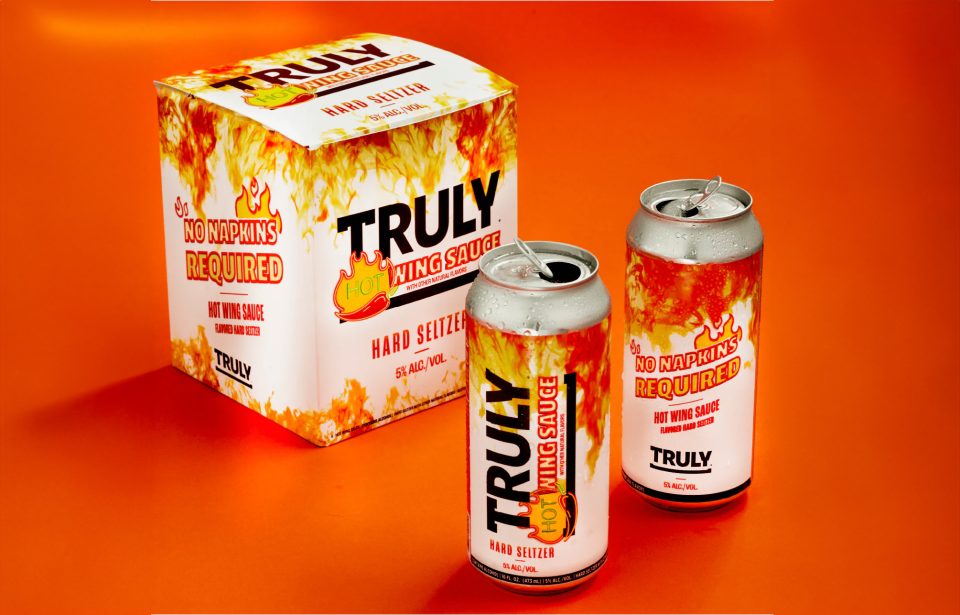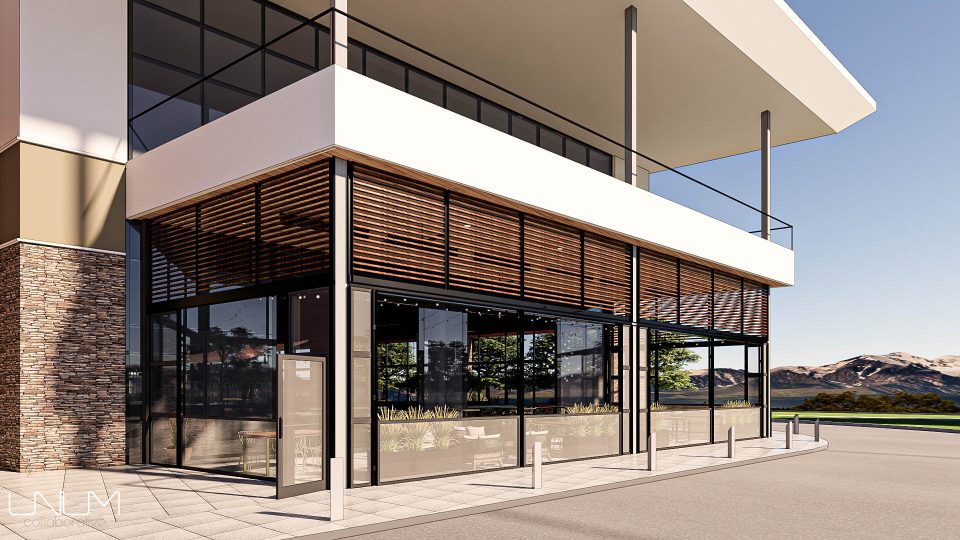Stone Brewing Co. (Escondido, CA) wants to build a new brewery on the east coast. Where? That depends a lot of state laws regarding alcohol sales.
In hopes of getting the Stone build, the South Carolina Brewer’s Association, and members of the Department of Commerce have pushed to create “The Stone Bill” which would change the laws to allow Stone Brewing Co. to operate as they do in their home in California. It’s passage is currently favorable, which could open up the door for not only Stone, but Deschutes who is also looking to build in the east.
It was only a matter of time before Anheuser-Busch got involved with their legal team, pushing against the passage of “The Stone Bill.” In a letter sent to South Carolina senators, Attorney Amanda K. Wuenscher of Columbia-based Mike Daniel & Associates takes a stand against the bill citing the erosion of the three-tier system, and unfair advantages given to craft breweries. Furthermore, the law firm argues that everyone should abide by the same rules.
Below is a copy of the email, sent to Beer Street Journal earlier today.
From: [email protected] [mailto:[email protected]]
Sent: Thursday, May 15, 2014 10:24 AM
Cc: [email protected]; Mike Daniel
Subject: H.3512: Please Non-concur with House AmendmentsSenator:
Mike Daniel, Wanda, and I wanted to touch base regarding H.3512, which was
amended in the House yesterday and will be in the Senate this morning for
concurrence or nonoccurrence. While our client, Anheuser-Busch, has no
problem with the original bill regarding the use of coupons in liquor
stores, they do have some serious concerns about one of the amendments added
by the House which is intended to make SC a more amenable environment for
craft brewers, in particular Stone Brewing Company. A-B is certainly not
opposed to brewpubs being in the state, we are completely supportive of
economic development initiatives, and we stand ready to work on a compromise
plan that will address everyone’s needs. However, the particular language
in this amendment and the manner in which the law would be changed would be
detrimental to the current three tier system for alcohol distribution.
Therefore, Anheuser-Busch’s primary concern is that this amendment erodes
the current system that works so well. We have been asked to share the
following information to provide more background on our client’s concerns.Thank you so very much for your consideration, Senator. We respectfully ask
that you non-concur and refer the bill to a conference committee so that we
have a chance to be heard in a committee setting before the General Assembly
takes action.* This amendment erodes the current three tier system for alcohol
distribution. It picks “winners and losers” in the beer marketplace by
singling out a specific entity to which this law would grant a competitive
advantage over other brewers, distributors, and even retailers. There are
specific regulations and requirements that all brewers, wholesalers, and
retailers must comply with under the three tier system. We are happy to
provide you with more specifics regarding these items, but for now, the most
important thing to note is that each step of the system is heavily regulated
and carving out one group the way this amendment proposes to do will create
an uneven playing field and give some brewers a competitive advantage over
others. Anheuser-Busch’s belief is that everyone should play by the same
rules.* The increase in the amount/definition is a primary concern for us
because there are already special laws for brewpubs which exempt them from
certain requirements, and in the case of this amendment, it is of particular
concern because it is taken in conjunction with the other items included in
or omitted from this amendment. For example, there are no limits on the
amount of beer that may be sold for off-premise consumption. In addition,
kegs, bottles, and cans would now be able to be sold to wholesalers with no
limit.* Also, while we understand there is the issue of potential jobs to think about, we are not sure
how a brewpub producing 500,000 barrels a year will employ the 400 people folks seem to be
claiming is the case. At Anheuser-Busch’s Williamsburg brewery, they produce 8.5 million
barrels of beer per year. While this is far more than the five hundred thousand
allowed for brewpubs in the proposed amendment, A-B’s Williamsburg brewery
only employs 72 salaried employees. If you include all of the part time
employees in the count, the total number of employees is still only around
250. Again, that’s 250 total employees to produce 8.5 million barrels per year. We cannot
imagine how 500,000 barrels per year will employ more than
400 people as claimed.* Anheuser-Busch is an advocate for beer period! The expansion of their industry is good for
everyone. As stated above, A-B is certainly not opposed to brewpubs being in the state and they
are completely supportive of economic development initiatives. However, this language is a
radical change to current law and should not be considered until all stakeholders have a chance
to weigh in n the issue. Passing this language via a last minute amendment is just not good
public policy.Amanda K. Wuenscher
MIKE DANIEL & ASSOCIATES, PA
GOVERNMENT AND PUBLIC AFFAIRS1122 Lady Street, Suite 705
Columbia, South Carolina 29201Office: 803.461.0400
Fax: 803.461.0399
Cell: 803.707.5466mikedanielandassociates.com







I hate to agree with A-B, but they have called points.
Craft brewers hate the 3 tier system, it’s what gives A-B such an advantage. It’s also pathetic that they Are attacking the number of promised employees with their own production benchmarks. If you make a low quality low price product and concentrate on the bottom line, you are going to employ way less workers.
This letter is what hatin’ is all about! How can you possibly argue that brew pubs are a bad thing…
Craft brewers hate the 3-tier system? I’ve spoken with several brewers in Georgia (I used to do a podcast which featured interviews with brewmasters) that love the 3-tier system. It seems that a lot of breweries don’t want to have to figure out how to distribute their beer, and I don’t blame them. There are systems in place that do it for them and they appreciate the way it currently stands. It seems that a lot of breweries would like to see the laws tweaked a bit, but I’ve never heard anyone say they wish the 3-tier system to be completely eradicated. The 3-tier system is a well-oiled (read: adequately-oiled) machine that is pretty fine the way it is. I think there could stand to be some exceptions and things changed here and there, but without 3-tier, life is going to be much harder for craft breweries, ESPECIALLY startups who are already forking over around a million dollars just to get their beer on the market. To add distribution on top of that? Holy crap.
You’re right, I meant the current systEm of laws that mandate the 3 tier system. Every brewery tour I’ve been on in GA I’ve heard complaints that they are not legally allowed to serve their biggest fans in their own place of business, and can’t send kegs to their favorite bars. Craft brewers should use distribution systems, but also have the option to serve from their own place of business. A-B probably wrote the 3 tier only mandate because they don’t want a brewpub for their swill, and so they want to hurt their competition by making craft brewers play by A-B’s rules
The employment numbers are off because A-B does not account for the employment of the restaurant, Stone Bistro Gardens, which will accompany the brewery. At no point did Stone claim that the 400 positions would be salaried ones, as A-B infers and uses as a primary point for undermining the pending legislation. I will even grant that 400 may be an optimistic, but when considering redistricting and increasing representatives that number seems feasible. I find it difficult to sympathize with A-B given the overwhelming position that they currently hold in the marketplace. The three tier system works for A-B, so I can understand why they object to letting others obtain an unfair advantage to an already imbalanced structure.
also take into account the automation A-B has in place.
I hate to agree with A-B. However, the bill basically makes it sound like you are free to do anything as long as you make less than 6 million barrels a year. Only an NBev or Miller Coors could feasably do that so they would not benefit. Either way A-B will probably stall this long enough for the Senate session to end in June.
Have you read the actual bill? It isn’t a free-for-all. It only affects brewpubs by 1] taking them from the current 2,000 barrels per year limit to 500,000 barrels per year, 2] allowing them to finally distribute beer off site, and 3] removing the current Pint Bill limits (patrons can only purchase up to 48 ounces for on-site consumption). It’s giving something to an element of the brewing business that’s extremely limited right now, and is still far from a free-for-all..
boycott Stella…
Shouldn’t shock anyone who knows this company… Spent 25 years building this brand and all they have ever cared about is AB. Now the Bankers from Brazil continue the tradition… AB doesn’t want competition because they haven’t innovated or introduced anything since Budweiser! Every new brand is a me too, Bud Light, Shock Top, etc. all followed someone else’s idea!… arrogance and marketing muscle is what they do well and in the end they will continue to loose sales and share! At least a brewer like Stone is innovating and developing the category and industry. Shame on you Anheuser Busch… as usual you are just being the Bully and trying to squish the little guy! Not even an American Company anymore!!! Stone is an American Company just like our little brewery… Support your local American Craft Breweries
they have innovated!!!!
Haven’t you ever heard of Bud Light Strawberrrrrita???
I think the degree of audacity shown by Anheuser-Busch – either in it’s former status as an American brewery or its current one as part of the international mega-conglomerate, AB/InBev – in challenging this bill in South Carolina is shocking when you look at AB’s own history of tied houses, intimidation by wholesalers of any brewery that tried to challenge them, buy-outs of smaller breweries that dared to compete on a regional basis, exclusivity deals with sports leagues and public venues of every description, and the already totally lop-sided competitive advantage they enjoy over ALL craft brewers, including Samuel Adams and Stone and every other larger brewery. The three-tier system works “so well” because AB was largely responsible for creating it and steering state governments into evolving it to their competitive advantage.
What’s got AB and its corporate overseers, back home in Belgium and Brazil, so suddenly concerned about “fairness” in the marketplace is that craft beer is the one and only trend in the beverage business that they haven’t been able to impede by either intimidation, manipulation of local wholesaler policies, scorn, buy-outs, or simply pouring enough advertising and promotional dollars into the marketplace that smaller breweries were effectively drowned out by the sheer omnipresence of the Bud name and image. By the time AB even started to take craft beer seriously as a business trend, there were already far too many brewers for them to even think of buying them all out. Now, with the craft culture having grown from fewer than 100 breweries in 1990 to almost 3,800 today, suddenly AB is starting to make noises like they’re the victim of unfairness in the beer market? What the letter contains from their lawyers can and should be completely discounted. Lawyers get paid to whip up justification out of either slim pickings or thin air and making the ridiculous seem plausible is their primary task. Remove the legalese from the thing and what it really says is, “Our client feels threatened in the marketplace and we want you to vote against your own economic best interests, against new jobs and whole new business classes (wonder how many hop fields exist in SC? How many yeast labs? How many brewing equipment manufacturers?) simply to insure that AB, our uber-wealthy client, gets to continue trying to club competing breweries like baby harp seals.” The people of South Carolina stand to gain FAR more by developing an in-state craft brewing business community, whose growth potential may well be unlimited, than to prop up some foreign-owned corporate carpetbaggers whose sole interest, as has been historically proven countless times, is their own P&L statement.
A-B just wants to maintain unfair advantages and the ability to maintain control over product placement in the market. The current three tier system is a joke with A-B and Miller Coors controlling the second tier and thus product placement in the stores (third tier).
I find not much good in any of the practices of A-B.
Their third bullet point is so ridiculous. A huge, automated brewery has the economies of scale to run more efficiently, especially since the production breweries don’t do any research and development. So, I could easily see a lot more man-hours needed to make bigger beers, possibly barrel-aging, using non-traditional practices as Stone is known for… Those all take man hours.
But the main point they are missing is the fact that there will be a FULL SERVICE RESTAURANT, BAR, AND FARM.
They aren’t just making beer. It will take over 100 employees just to run the restaurant portion. Easy. Dishwashers, servers, bartenders, managers, hosts, bussers. All paying jobs that AB will NEVER be providing at the facility they mention, but jobs they will be blocking because they need to bully.
It’s sad.